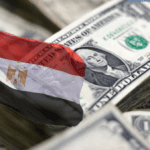Finance Minister hails Moody’s decision, outlines future plans – Dailynewsegypt


Mohamed Maait, the Minister of Finance, welcomed Moody’s global credit rating agency’s decision to upgrade its outlook on the future of the Egyptian economy from negative to positive. He said that this paves the way for enhancing Egypt’s credit rating shortly from this institution, which is one of the most influential globally in this field. Its reports are highly anticipated by funds, business circles, and investors worldwide.
In a statement from the Ministry of Finance, Maait said that the positive outlook on the Egyptian economy, along with Moody’s recognition of the bold developments, reforms, and decisive steps taken by Egypt and the government to support the overall economic stability, reflects a vote of confidence in managing the Egyptian economy during this challenging period. He added that the policies adopted by Egypt have proven their ability to withstand multiple shocks over the past years, and the aim is to continue working diligently on raising Egypt’s credit rating in the next phase.
The statement highlighted the bold measures taken by Egypt, such as the transition to a flexible exchange rate and a one-time interest rate hike of 600 basis points, as well as the successful completion of expert-level agreements with the International Monetary Fund to complete the first and second reviews of the Egyptian reform program. The agreement includes increasing the IMF’s funding for Egypt to $8bn, up from $3bn, and receiving $1.2bn from the World Bank’s Environmental Sustainability Fund. Moreover, the recent announcement of an unprecedented historic deal to develop the Ras El Hekma area with immediate revenues of $35bn for Egypt. All these developments will help cover the financing gap until the fiscal year 2025/2026 and eliminate waiting lists for dollar demand.
Moody’s also expects that transferring part of the UAE deposits in Egypt to foreign direct investment, amounting to $11bn will improve the situation of the banking sector in Egypt. The Minister of Finance pointed out that the ministry’s leadership is intensifying its communications with other rating agencies and global investment circles to explain all these developments, reforms, and government plans and the progress of Egyptian economic policies that support the competitiveness of the Egyptian investment climate. He expressed his hope that Moody’s positive report will have a favorable impact on these entities, leading to more investment flows into the Egyptian economy in the coming period and upgrading Egypt’s credit rating with the three credit rating agencies in the coming months.
Maait affirmed the government’s commitment to protecting low and middle-income families and taking social measures to mitigate the impact of the economic policies pursued on Egyptian families. He said that additional steps have already been taken to protect the most affected categories by the inflationary wave at an annual cost of up to EGP 180bn, with a total cost starting from this March of EGP 240bn. He added that the implementation of these steps will fully begin starting this month to ease the burden of rising inflation rates and that the state and the Egyptian government will continue to work on increasing social spending.
He pointed out that the government plans to start reducing the debt-to-GDP ratio to less than 80% over the next three years, indicating that the cost of debt service will decrease as the inflationary wave subsides and the current high interest rates decline.
Ahmed Kouchouk, Deputy Minister of Finance for Fiscal Policies, stressed the government’s ongoing commitment to implementing the State’s Ownership Policy Document and fostering competition between the private and public sectors. This is one of the key priorities of the Egyptian government in the coming period, as it aims to boost the role of the private sector in driving economic growth. To this end, one of the major reforms undertaken is to expedite the privatization program, offer more investment opportunities for the private sector, and eliminate any preferential tax treatment for all state-owned companies.
Moody’s also stated that it expects the announcement of the expert-level agreement with the International Monetary Fund, along with bold measures in fiscal, monetary, and investment policies, particularly the decisions of the Monetary Policy Committee at the Central Bank in its recent emergency meeting, to enhance the support for inflation targeting and reaffirm Egypt’s dedication to reducing inflation and bringing it to a single digit. In the meantime, the foreign currency shortage will ease and improve due to the anticipated inflows of foreign currency in the Egyptian economy, whether through remittances, direct investments, or indirect investments in financial portfolios.
Moody’s also observed that negative risks have significantly diminished, as large investments in the Ras El Hekma project will bolster Egypt’s foreign exchange reserves to cover the external financing gap until the fiscal year ending in June 2026.






